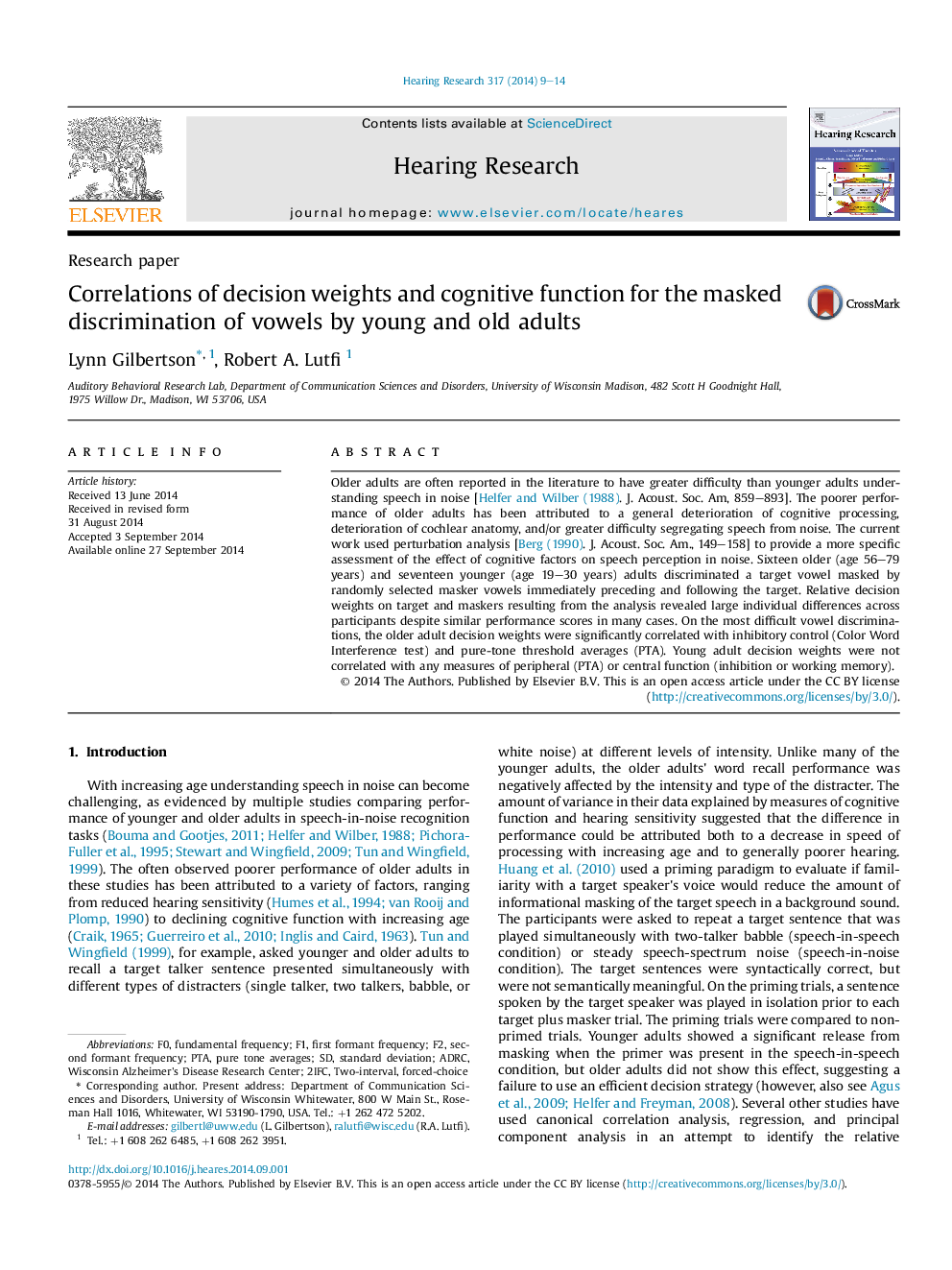| Article ID | Journal | Published Year | Pages | File Type |
|---|---|---|---|---|
| 6287374 | Hearing Research | 2014 | 6 Pages |
Abstract
Older adults are often reported in the literature to have greater difficulty than younger adults understanding speech in noise [Helfer and Wilber (1988). J. Acoust. Soc. Am, 859-893]. The poorer performance of older adults has been attributed to a general deterioration of cognitive processing, deterioration of cochlear anatomy, and/or greater difficulty segregating speech from noise. The current work used perturbation analysis [Berg (1990). J. Acoust. Soc. Am., 149-158] to provide a more specific assessment of the effect of cognitive factors on speech perception in noise. Sixteen older (age 56-79 years) and seventeen younger (age 19-30 years) adults discriminated a target vowel masked by randomly selected masker vowels immediately preceding and following the target. Relative decision weights on target and maskers resulting from the analysis revealed large individual differences across participants despite similar performance scores in many cases. On the most difficult vowel discriminations, the older adult decision weights were significantly correlated with inhibitory control (Color Word Interference test) and pure-tone threshold averages (PTA). Young adult decision weights were not correlated with any measures of peripheral (PTA) or central function (inhibition or working memory).
Related Topics
Life Sciences
Neuroscience
Sensory Systems
Authors
Lynn Gilbertson, Robert A. Lutfi,
